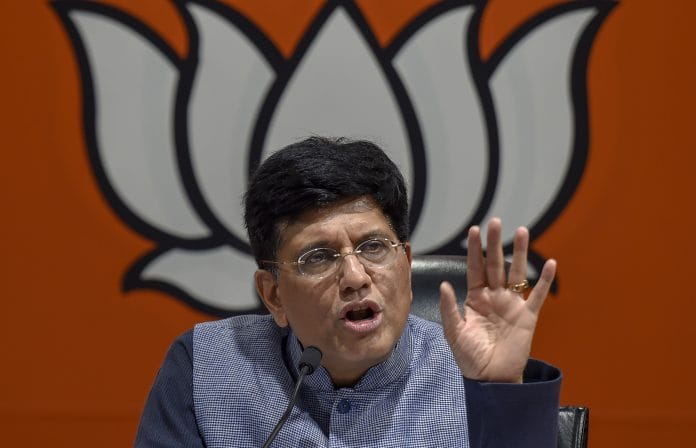New Delhi: India will insist on measures to prevent dumping of goods as part of its key demands at a meeting to finalize a pan-Asian trade deal, according to people familiar with the matter.
Better terms for free movement of its professionals and greater access to Chinese market are also crucial for India to join the Regional Comprehensive Economic Partnership, the people said, asking not be identified as the matter is not public. Commerce Minister Piyush Goyal will raise the demands at the meeting of trade ministers of the 16-member RCEP in Bangkok on Saturday.
A trade ministry spokeswoman didn’t immediately reply to questions about India’s stance when reached on her mobile phone, saying a statement will be issued Thursday.
India is under increasing pressure to decide whether it will be a part of the China-backed grouping that seeks to conclude negotiations by November. The RCEP, which aims to create the world’s largest trading bloc covering nearly half of the globe’s population, is being seen as a champion of free trade amid a climate of trade war.
India’s primary concern about the pact is the influx of cheap Chinese goods, which could further widen New Delhi’s about $55 billion trade deficit with Beijing last year. Prime Minister Narendra Modi’s government wants addition of a clause that would enable an automatic increase in levies, in case the import of items exceeds a certain threshold.
The Modi-led administration is seeking to minimize the hit on domestic sector, especially in agriculture and certain infrastructure industries.
The government is seeking better terms for the movement of its skilled workers, a demand that’s run into opposition from countries including Singapore, the people said. It also wants stricter rules of origin to prevent misusing duty benefits.
Tensions between India and China have contributed to the delay in finalizing the talks, which have dragged on for seven years with India participating in more than 27 rounds of discussions with the 10-member Association of Southeast Asian Nations, as well as Japan, South Korea, Australia, New Zealand, and China. –Bloomberg
Also read: BJP govt needs a long view on economy, quick fixes just result in a sugar high






